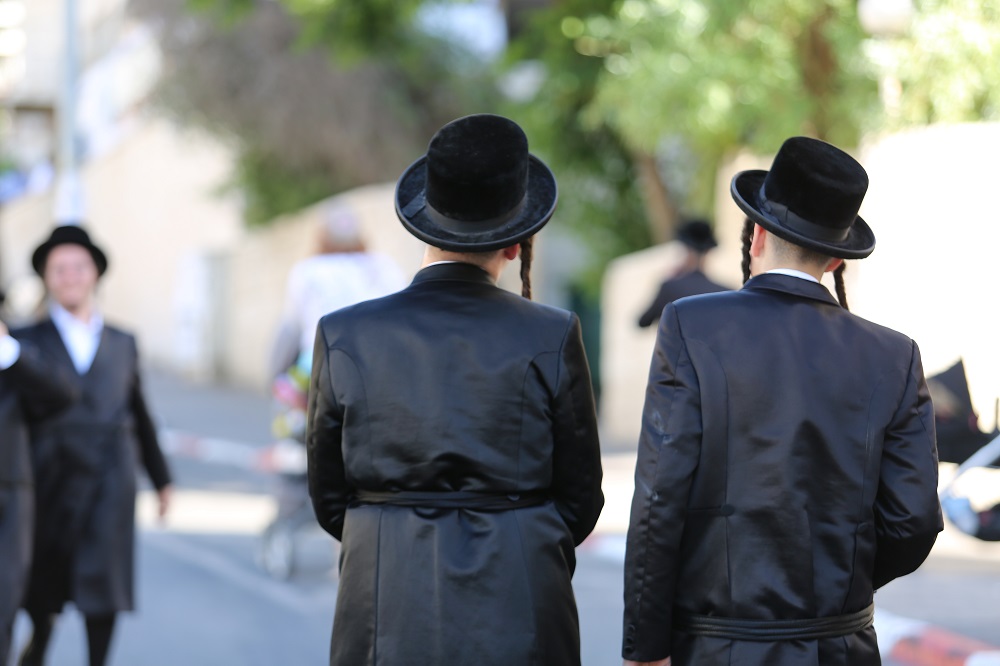Extending the Definition of Incitement Exclusively to Haredim: Unequal and Unjust
Should the foundations of the crime of incitement to racism be reconsidered? Absolutely-yes. But it should not be selective and favor a particular sector in society.

Photo by David Cohen, Shutterstock
The Ministerial Committee for Legislation discussed a bill that proposes extending the definition of incitement to racism so as to criminalize offensive statements against the Haredi population.
First, harsh and harmful statements against any group in society, including the Haredi population, are of course unacceptable and should be unequivocally denounced. Public discourse should always refrain from sweeping generalizations about entire groups. But there is a major difference between denouncing inappropriate discourse and defining it as a criminal offense that carries a five-year sentence. Freedom of expression is one of democracy’s supreme values, and thus any criminal prohibition that infringes on freedom of expression must be as limited in scope and as carefully worded as possible.
The ban on incitement to racism in Israel is not well defined, and it includes only the basic description of “one who publishes something with the aim of incitement to racism.” Thus, it focuses solely on the mental principle, the publisher’s intent to incite racism. In addition, the definition of “racism” itself is restrictive and relates only to insults or injuries that are directly linked to race, nationality, or color: “persecution, humiliation, debasement, expressions of hostility, hatred, or violence, or fostering disputes with any group in the population, based on color, racial identity, or ethno-national background.”
Thus today, incitement against any group on the basis of religious identity (whether Haredi, national religious, secular, Reform or Conservative) is not considered “incitement to racism,” even if it is extremely serious and includes persecution, humiliation, and so on. The same is true of incitement against groups that have suffered severe persecution and discrimination in the past, and to some extent still do so in the present, such as women or the LGBTQ community: None of these groups are covered by this prohibition, and disseminating even the most harmful content about them will not be considered “incitement to racism.”
Should the categories specified and protected in the definition of “racism” be expanded? In principle, yes. In some countries, such as Canada, the prohibition against racism also includes broader categories of groups by religion, sexual orientation, gender, and more. But we should keep in mind that such changes should be made cautiously, due to the blow they may deal to freedom of expression and due to the “chilling” effect they can have—silencing debate, encouraging complaints to the police on all sides, and fostering increasingly legalistic public discourse—which apart from harmful and obscene expressions, should leave room for criticism, sometimes even harsh criticism.
When considering expanding the list of protected categories, it is very important to also reconsider the foundations of the criminal acts themselves, and to reformulate them more precisely so as to express the values protected by this criminal prohibition: defending human dignity, preventing racial hatred, and preventing possible violence against protected groups.
In any case, the selective expansion of the prohibition that is being proposed in the new bill—to include just one religious group, the Haredim—is wrong, as it would fly in the face of the democratic principles of both freedom of expression and equality. There is no justification, other than the political power in the coalition currently enjoyed by the Haredi parties, for making the Haredi public the only protected religious group in Israel, just as there is no justification for making this change before including the categories of gender and sexual orientation. Women and members of the LGBTQ community suffer from incitement and verbal attacks, and as a result- also from frequent physical violence, far more than do Israel’s Haredim.
Should the foundations of the crime of incitement to racism be reconsidered? Absolutely-yes. But should this take the form of a selective and unequal amendment that favors Haredim? Absolutely not.
Dr. Amir Fuchs is a Senior Researcher at the Israel Democracy Institute and is a lecturer at the School of Government and Social Sciences at Hadassah Academic College. He has also served as a member of the Minister of Justice’s Commission for Amending the Israeli Homicide Law.
